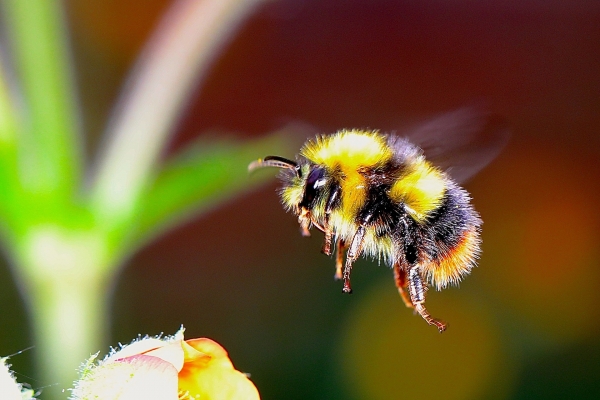Temperature changes have negatively impacted most species of bumble bees over the past 120 years, according to new research published this week in Biology Letters. The researchers note that changes in temperature had more of a negative impact than other factors - such as precipitation or floral resources.
“Bumble bees are important pollinators for wild plants and for the crops humans rely on for food. That’s why we need to develop conservation strategies that account for the future impacts of climate change on bee populations,” says study lead Hanna Jackson, a Masters student in the M’Gonigle Lab in biological sciences at Simon Fraser University.
Jackson and her colleagues analyzed an existing dataset containing records on 46 bumble bee species across North America between 1900 – 2020. They created two occupancy models – one focused on time and the other on environmental factors – to estimate effects of climate and land-use variables on species’ occupancy, a measure of where species are found. They found that six bumble bee species decreased through time, 22 increased and the remaining 18 were stable.
Read more at: Simon Fraser University
Photo Credit: woodypino via Pixabay


